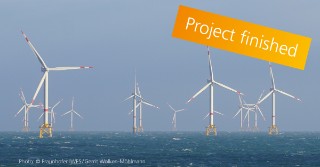
Development of methods to increase the availability of wind power installations in climatically cold regions of Germany and Northern Europe - The aim is to develop methods which reproduce the ice deposition on the rotor blades in order to determine how it affects the performance and the structural fatigue of a wind turbine, and subsequently to derive methods which can predict the icing up risk of wind turbines in order to estimate energy generation losses. BMWK, 10/2013 - 09/2016
more info




